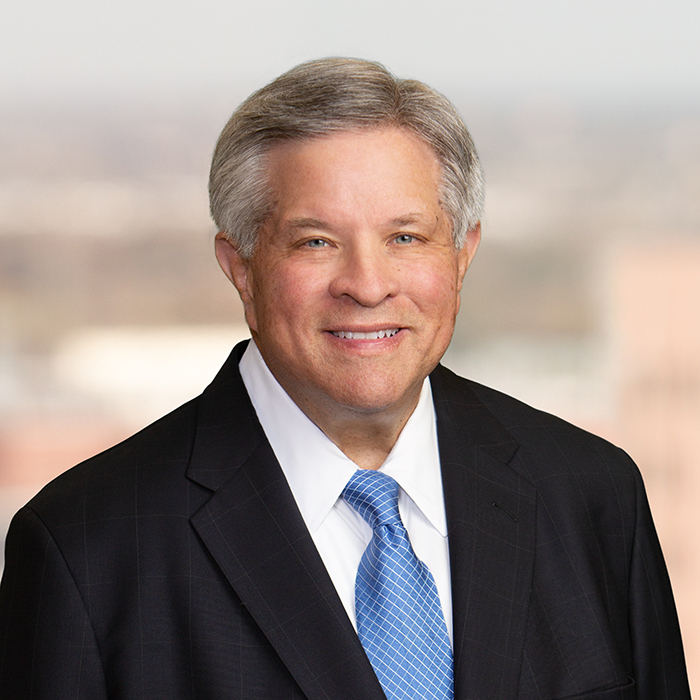 On July 18, 2017, the Dallas Court of Appeals issued its long-awaited decision in Enterprise Products Partners, L.P. v. Energy Transfer Partners, L.P., reversing the Dallas County District Court’s judgment that awarded ETP more than $535 million in damages for alleged breaches of a disputed common law partnership. The 2014 judgment caused shockwaves in the Texas business community, and this week’s decision from the Dallas Court of Appeals is likely to be closely studied by companies across Texas.
On July 18, 2017, the Dallas Court of Appeals issued its long-awaited decision in Enterprise Products Partners, L.P. v. Energy Transfer Partners, L.P., reversing the Dallas County District Court’s judgment that awarded ETP more than $535 million in damages for alleged breaches of a disputed common law partnership. The 2014 judgment caused shockwaves in the Texas business community, and this week’s decision from the Dallas Court of Appeals is likely to be closely studied by companies across Texas.
ETP, Enterprise, and Enbridge are three of the largest oil pipeline companies in North America, and the dispute between them led to one of the largest judgments in Texas history. In early 2011, Enterprise approached ETP about converting one of ETP’s pipelines or building a new pipeline for the purpose of moving oil from the Cushing, Oklahoma crude oil storage hub to refineries in Houston. ETP and Enterprise executed a letter agreement and term sheet defining the ownership structure and operation of their potential venture, and the companies agreed to contribute to and market their venture. They also agreed that “no binding or enforceable obligations exist” under their transaction until the parties “received their respective board approvals and definitive agreements memorializing the terms and conditions of the transaction.…”
After executing the letter agreement and other agreements, ETP and Enterprise worked together to secure commitments for their pipeline. The parties did not receive enough commitments to meet their minimum threshold, and Enterprise terminated its participation in the project. Upon termination, Enterprise and Enbridge—which already had begun discussions to pursue another Cushing-to-Gulf Coast pipeline—moved forward with their alternative Seaway crude oil pipeline, secured considerable commitments, and began operating the southbound pipeline from Cushing.
ETP sued Enterprise in Dallas County District Court for breach of joint enterprise and breach of fiduciary duty, claiming that Enterprise formed a partnership with ETP, that Enterprise hid its dealings with Enbridge, and that Enterprise usurped a business opportunity by teaming with Enbridge to operate the Seaway pipeline. Enterprise contested the formation of any partnership. After a four week jury trial, the jury found that ETP and Enterprise had created a partnership to pursue a pipeline project from Cushing to the Gulf Coast and awarded ETP damages. In July 2014, the district court signed a judgment for ETP awarding more than $319 million in actual damages, $150 million in disgorgement of wrongfully obtained benefits, and more than $66 million in interest. Enterprise appealed.
The judgment caused serious concern across Texas, with executives and attorneys from numerous industries across the state examining whether their potential projects and letters of intent created common law partnerships and what steps they could take to avoid partnership liability.
On Tuesday, a three-judge panel of the Dallas Court of Appeals reversed the judgment against Enterprise, reasoning that ETP had failed to prove that the conditions precedent stated in the letter agreement had been satisfied or waived. The Court rejected ETP’s argument that the formation of a common law partnership between ETP and Enterprise was controlled solely by the five factor test in Texas Business Organizations Code § 152.052. Instead, the Court ruled that Section 152.052’s factors are non-exclusive. The conditions in the parties’ letter agreement – requiring board approval and definitive agreements – constituted conditions precedent that had to be satisfied before a partnership could be formed. The Court concluded that “unperformed conditions precedent to forming a partnership will prevent the partnership from forming unless the parties waive the performance of the conditions precedent or other rules of law or equity nullify them.”
The Dallas Court of Appeals opinion further held that Enterprise’s express denial that the conditions precedent for the formation of a partnership had been met triggered ETP’s “burden to plead and prove compliance with the condition precedent of approvals by the parties’ boards of directors and execution and delivery of definitive agreements.” Alternatively, ETP “had the burden to prove an excuse for nonperformance.” ETP did not deny that the conditions were not met. Thus, the Court held that ETP was obligated to request a jury finding that it established waiver or excuse of those conditions, but failed to do so as required by Texas Rule of Civil Procedure 279 and applicable law.
ETP’s final avenue to keep its judgment was to prove that Enterprise waived the conditions precedent as a matter of law. The Court found that ETP presented evidence from the parties’ agreements and conduct supporting a waiver, but that evidence did not rise to the level of conclusively establishing waiver of the conditions precedent.
The Court therefore rendered judgment that ETP recover nothing from Enterprise. It is anticipated that ETP will petition the Texas Supreme Court to review the decision.
The decision likely will be regarded by the Texas business community as welcome clarity on when a partnership is formed and how conditions precedent can be used to prevent the unforeseen formation of a common law partnership.
If you have any questions regarding this e-Alert, please contact Richard A. Howell (713.752.4531 or rahowell@jw.com), Amy Baird (713.752.4525 or abaird@jw.com), Tre Fischer (713.752.4530 or tfischer@jw.com), or Mike Pearson (713.752.4311 or mpearson@jw.com).



